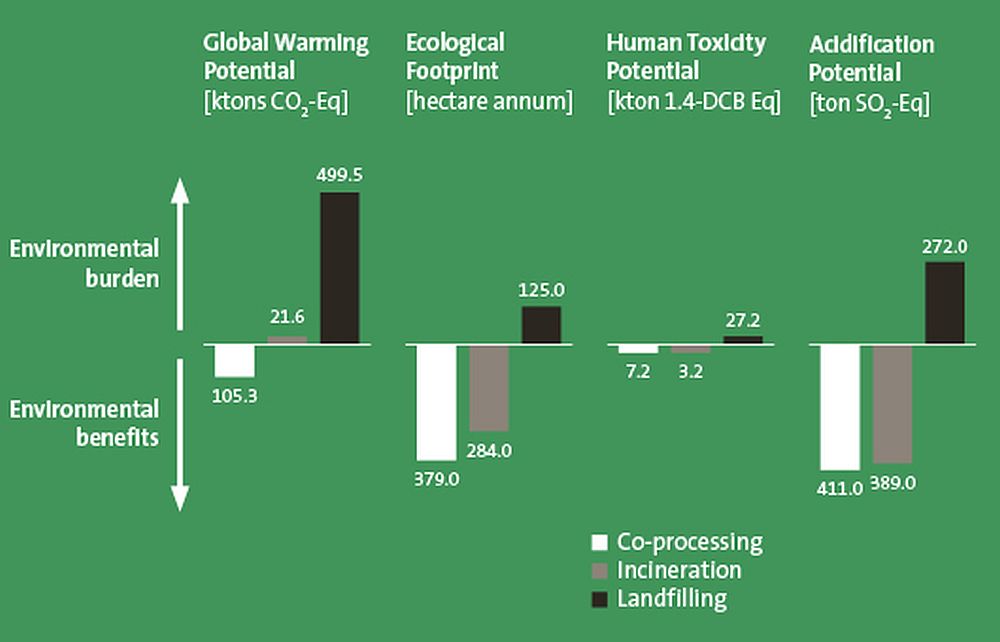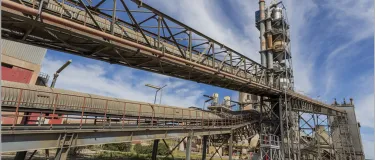Co-processing
Geocycle offers waste treatment solutions based on a unique industrial process called co-processing. It refers to the simultaneous recycling of mineral materials and recovery of energy within one single industrial process: cement manufacturing.
The mineral part of the waste replaces primary mineral materials (such as limestone, clay or iron) and the combustible part provides the energy needed for the clinker production. As a result, 100% of the waste input is recycled or recovered without producing any additional residue. The technology used also ensures a performing destruction of toxic components.
Co-processing achieves a superior environmental performance as compared to landfill and incineration which is demonstrated by life-cycle assessment studies.
Co-processing is recognized by the UNEP Basel Convention as a practical, cost efficient, safe and environmentally preferred option compared to other waste treatment options.
The clear advantages of co-processing
Life-Cycle Assessment studies demonstrate that co-processing offers superior environmental performance to landfilling or incineration. Among its many advantages, it:
- Completely destroys waste materials through high temperatures, oxygen excess and long residence time
- Avoids formation of dioxins and furans due to the specific temperature profile
- Leaves no residue that needs to be landfilled, as the ash reacts with other components to form the manufactured final product
- Reduces greenhouse gas emissions, as the waste is used to replace fossil fuels
- Preserves non-renewable fossil fuels and natural resources as the energy and mineral value of the waste materials are recovered







